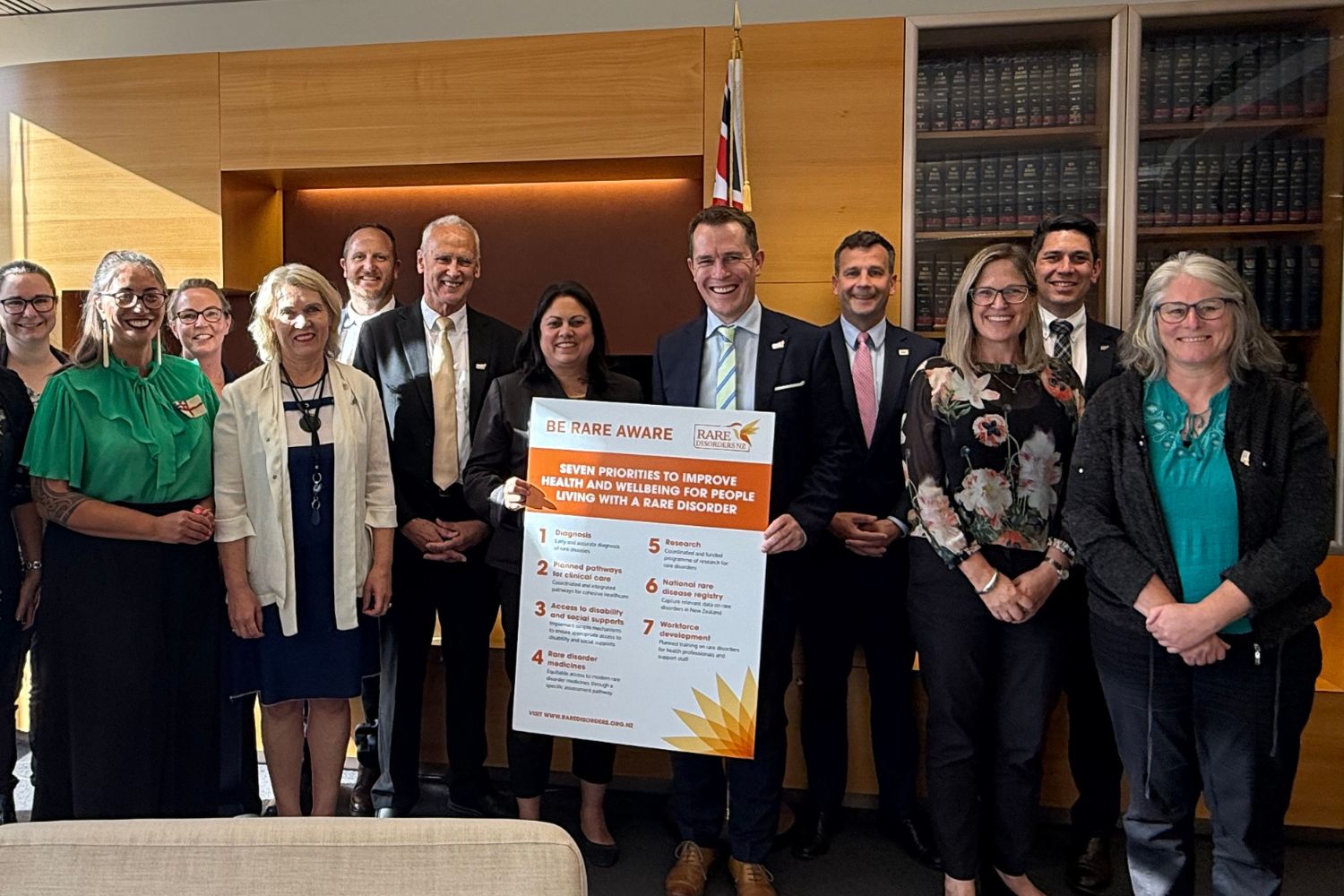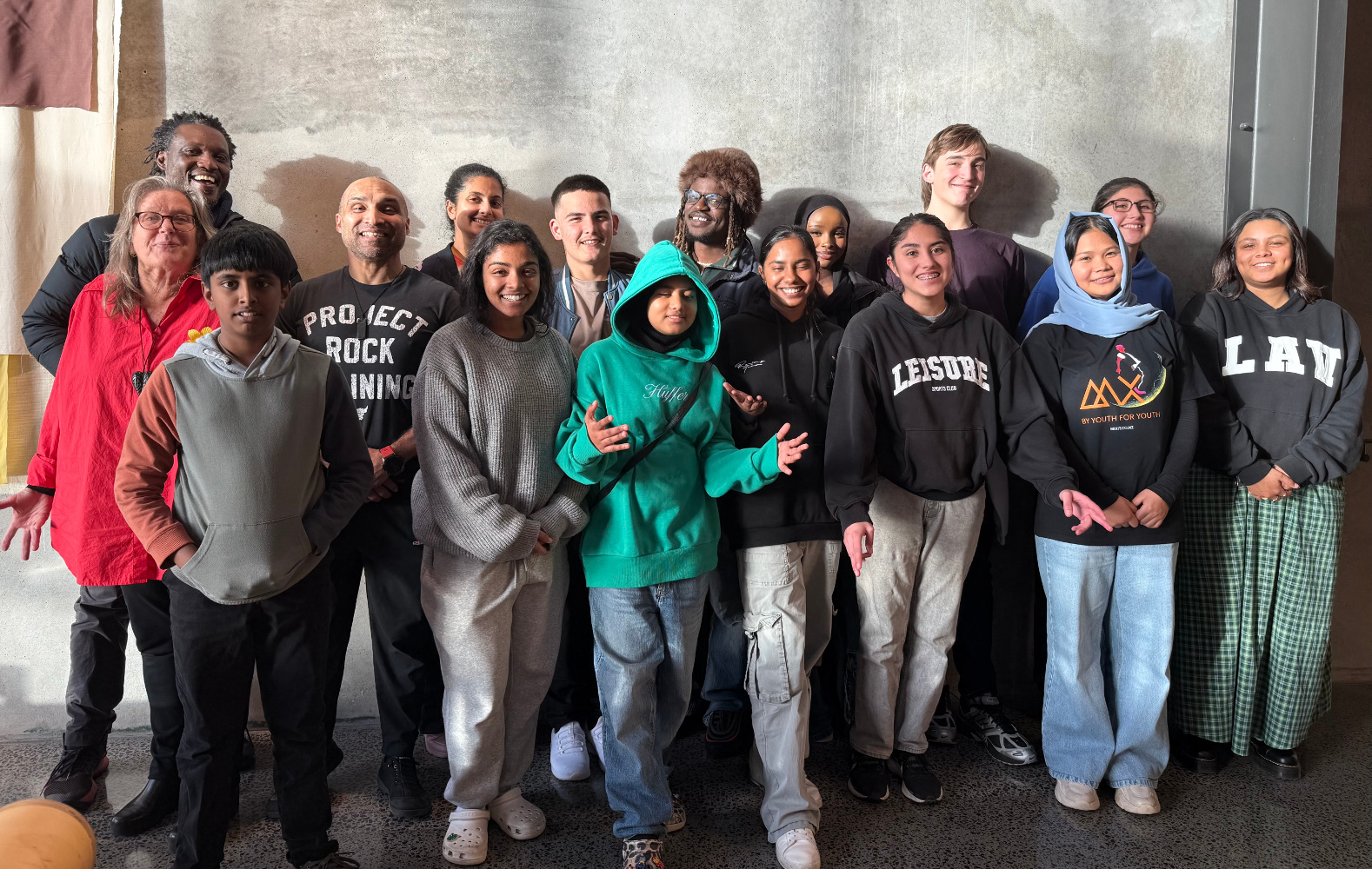Rare Disorders, Real Struggles, Real Hope
September 20, 2024

When 11-year-old Chloe fell ill after a school accident, her mother Alanna was met with dismissive medical professionals. But Alanna knew something was terribly wrong. With unwavering determination, she fought for answers, and found a crucial ally in our partner charity, Rare Disorders New Zealand.
In many ways, Alanna felt relieved when her son Lachlan was diagnosed with the rare condition DiGeorge syndrome, also known as 22q11. 2 deletion syndrome. Alanna had known since birth that something wasn’t right, but it took three-and-a-half years of being bounced around in the health system. There were numerous tests, a misdiagnosis, and lots of pushing from Alanna and her husband demanding answers to get to that diagnosis. They had felt belittled along the way and made to feel they were paranoid, but they never gave up. They knew there was more to Lachlan’s symptoms.
When Alanna's normally healthy and happy 11-year-old daughter Chloe began showing unnerving symptoms after a school accident, Alanna knew she would have to fight again to uncover what was happening. Following a head injury, Chloe had stopped eating and drinking, developed chronic pain and suddenly had mobility issues. Despite hospital staff telling her there was nothing of serious concern, Alanna knew from experience that medical staff don’t always get it right.
“Our GP was amazing and saw Chloe every day because he was so concerned. But hospital staff didn’t take her symptoms seriously. She couldn’t eat because she was in so much pain, yet their advice to us was to force-feed her,” shares Alanna.
Alanna was already connected with Rare Disorders NZ (RDNZ) from her journey with Lachlan. Through a meeting with the organisation in her role representing the 22q community, she opened up to RDNZ staff about her challenges getting answers about Chloe’s condition. The organisation recognised the toll it was taking on Alanna and was quick to connect Alanna with pain specialist Dr. Buzz Burrell. He insisted Chloe be referred to Starship Children’s Hospital in Auckland.
Rare Disorders NZ lit a fire in me to keep me fighting.
The paediatrician in Christchurch stopped the referral, considering it unnecessary, but Alanna put her foot down. Chloe was losing the ability to walk and was in constant pain. Alanna refused to allow Chloe to be discharged from hospital until she received the referral. Finally, after five weeks they got it.
“If we’d been able to get the referral straight away, she wouldn’t have lost feeling in her legs. Rare Disorders NZ lit a fire in me to keep fighting,” says Alanna.
“Getting those connections that we couldn’t get through our normal lines really helped steer us in the right direction. The fact Rare Disorders NZ noticed I was struggling and got on to the case straight away meant so much.”
Rare Disorders NZ makes us feel understood and part of a community.
Chloe was eventually diagnosed with Functional Neurological Disorder, a rare condition triggered by the head injury. Because of the delay in getting diagnosed and receiving treatment, Chloe lost a lot of motor function and was confined to a wheelchair. Only through the family's own fundraising efforts were they able to afford for Alanna to accompany Chloe to a specialist clinic in Sydney for nine weeks of treatment. This treatment has proven so beneficial that Chloe is now able to use a walker for periods of time during the week.

“Having a child with a rare condition can be a lonely experience, and not just because the condition is challenging. It is the lack of understanding and support that really hits hard. Rare Disorders NZ makes us feel understood and part of a community. We’re so grateful to have that support and to know we are not alone.”
Chloe’s accident was in February 2021 and the battle continues for support within the health system. Following over 20 years of advocacy by RDNZ, the government has launched the country's first Rare Disorders Strategy. Co-designed by RDNZ and the Ministry of Health, this strategy aims to guide the health system in providing equitable responses to rare disorder patients, ensuring they receive the support needed for the best possible quality of life – a vital development for Alanna's family and others affected by rare disorders.
Words and images supplied by Rare Disorders NZ
Support Rare Disorders New Zealand with your 1%
Help Rare Disorders NZ support all New Zealanders who live with a rare condition with just 1% of your annual income. For the average Kiwi, that's only $10 per week. Support Rare Disorders NZ with your 1%.



